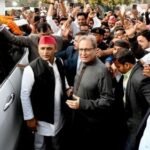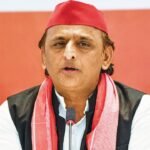
ARABIAN TIMES NEWS NETWORK
Ambassador Dr. Karthika Singh’s journey is a testament to how purpose, perseverance, and passion can transcend boundaries and redefine success on a global scale. Born with an innate drive to serve and uplift, Dr. Karthika Singh began her path in humble surroundings, armed with a powerful vision: to become a catalyst for change in society. Her early years were marked by academic excellence, leadership qualities, and a passion for humanitarian causes, all of which shaped the strong, multifaceted leader she is today.
Her first foray into business was not just entrepreneurial, it was transformational. She ventured into the B2B consultancy space, building bridges between industries, empowering start-ups, and fostering international collaborations. Her business acumen earned her accolades and respect in both India and the UAE, two power centers of commerce and culture.
As her professional influence grew, so did her sense of responsibility. Dr. Karthika Singh turned her focus toward human rights advocacy, social work, and international diplomacy, becoming a voice for the voiceless. Her compassion translated into action as she took on key leadership roles that directly impacted the lives of underprivileged individuals and vulnerable communities.
She was appointed as State Head (Mumbai, Maharashtra) for the Crime Grievance and Intelligence Council, where she actively fights for justice and human dignity, Ambassador by the Government of Colorado – USA, under an intergovernmental body, a rare and prestigious international role and Area Head of Maharashtra for PB News All India, amplifying truth, ethics, and accountability in journalism.
Her dedication has been recognized through numerous national and international honors, including, Padma Shree Samman – Bhartiya Padma Bhushan Samman – Bharat Gaurav Ratna Shri Sammaan – World Human Rights Commission Award – Visionary Doctorate Award approved by the Government of India – And the prestigious Mumbai Global Asia Brand Ambassador Award
But beyond the awards, titles, and responsibilities, what defines Ambassador Dr. Karthika Singh is her unwavering humility and quiet strength.
Her personal mantra, “Work in silence and let your success speak” is not just a quote, but the philosophy that guides every chapter of her life. Today, she stands not only as a business icon, global ambassador, and social reformer, but as an inspiration to millions, particularly to women and youth across the world who dare to dream beyond limits. Her journey is far from over. With each new role, initiative, and award, Dr. Karthika Singh continues to redefine leadership, not as power, but as purpose in action.










